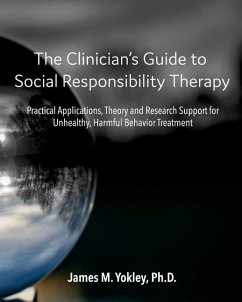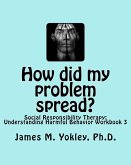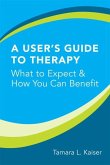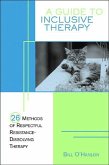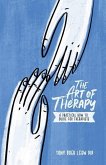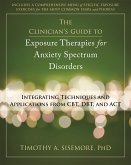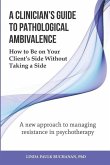Social Responsibility Therapy (SRT) was designed to increase socially responsible behavior and decrease unhealthy, harmful behavior in clients from multiple cultural backgrounds. The Clinician's Guide to SRT provides practical clinical applications, case examples and exercises integrated with theory and research support on the treatment of unhealthy, harmful behavior. This guide provides in-depth, clinician-focused coverage on working with clients in the following healthy lifestyle development areas. The ART of Positive Change helps clients clarify what they want in life, learn how to get what they need in life and understand how to achieve healthy lifestyle goals. Multimethod-Multipath Behavior Therapy helps clients learn to manage unhealthy, harmful behavior. The Problem Development Triad helps understand how they acquired, maintained and generalized their unhealthy, harmful behavior to other life areas through. The Clinician's Guide to SRT was designed to support clinicians in treatment programs or independent practice with clients who exhibit more than one problem behavior on the unhealthy, harmful behavior continuum. This continuum ranges from less severe behaviors considered primarily harmful to self (e.g., unhealthy eating, cigarette smoking) to moderately severe behaviors that are often harmful to both self and others (e.g., substance abuse, compulsive spending or gambling) and finally to severe behaviors that are primarily harmful to others (e.g., sexual abuse, physical abuse, property abuse/theft). The Clinicians Guide to SRT uses: Unhealthy eating case examples to illustrate the treatment of behavior considered primarily harmful to self; Alcohol and drug abuse case examples to illustrate treatment of behavior considered harmful to both self and others and; Sexual offense case examples to illustrate treatment of behavior considered primarily harmful to others. Each of the four SRT "Healthy Behavior Success Skills" employed to help clients let go of unhealthy, harmful behaviors are described with step-by-step instructions. Positive relationships are extremely important in helping redirect clients away from old unhealthy behaviors during stressful times and motivate them towards positive change. Teaching clients the "Healthy Relationship Success Skills" needed to develop positive relationships is explained in detail. All clinical intervention chapters begin with "strait to the point, goals and objectives" for clinician treatment planning and include treatment exercises. Research support for each treatment approach or intervention discussed has been boxed off and moved from the text to the end of each section. This maintains the clinical guide focus for practitioners in direct service settings while providing scientist-practitioners in academic settings with the background information needed for their teaching and research. SRT implementation theory, research support, methods and treatment protocol information is provided in "Social Responsibility Therapy for Adolescents & Young Adults: A Multicultural Treatment Manual for Harmful Behavior". The Clinician's Guide to Social Responsibility Therapy chapters on how unhealthy, harmful behavior was acquired, maintained and generalized to other problem areas are supported by client workbooks on "How did I get this problem?", "Why do I keep doing this?" and "How did my problem spread?". All of these publications are available on Amazon.com and summary information is provided at www.srtonline.org.
Hinweis: Dieser Artikel kann nur an eine deutsche Lieferadresse ausgeliefert werden.
Hinweis: Dieser Artikel kann nur an eine deutsche Lieferadresse ausgeliefert werden.

